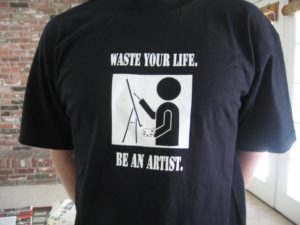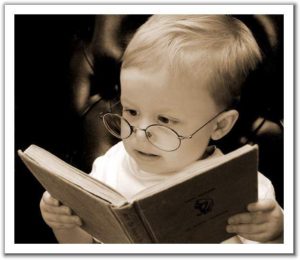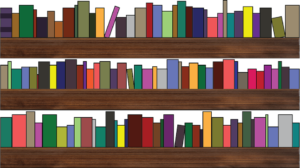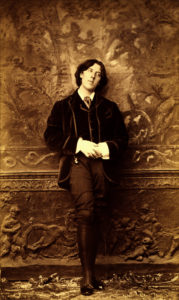Welcome back, class.
Today’s lecture might be profoundly interesting or dangerously boring; it depends on the level of pleasure you take in defining things. I know that some of you couldn’t care less. I can see it in your eyes.
But for those of you staring unblinkingly, waiting with bated breath…have I got a treat for you! You’re what the “academics” call “academics.” Understanding theory and theoretical ideas actually interests you, and bonus points are in order if you like learning things that have no practical value in the working world whatsoever. You’re my kind of people.
 A lot of my time in literature courses at college was spent asking the probing question, “What is literature?” (We’ll get to WHY that’s an important question in a bit.) It seems like a simple enough question, but it always invokes a huge discussion that usually boils down to this: literature is art that uses words and language. It’s also described as a category of art—literature is always art but art is not always literature.
A lot of my time in literature courses at college was spent asking the probing question, “What is literature?” (We’ll get to WHY that’s an important question in a bit.) It seems like a simple enough question, but it always invokes a huge discussion that usually boils down to this: literature is art that uses words and language. It’s also described as a category of art—literature is always art but art is not always literature.
Some define it by examples: obvious ones like novels, plays, and poems, as well as more obscure examples like movies, blog posts (!), and essays. Even the most clinical or scientific documents can be told artfully, and can therefore be considered literature. I know of a woman who wrote her dissertation claiming that kitchen recipes were a form of literature.

A T-Shirt Poem
This leads me to one of my favorite claims: ANYTHING that uses words or text is literature. A letter, an e-mail, a paycheck, a coffee mug, a T-shirt, a company logo, a video game, a poster, a political speech, a prescription label…all of it, literature! So next time you have a surprise essay to write, and you’re stumped, argue that your T-shirt is a poem (at your own peril).
However, it’s worth mentioning that we don’t read tax reports like we read Shakespeare. We don’t read stop signs like we read poetry, and we don’t read magic 8 balls like we read Harry Potter. Something in our collective social standards distinguishes between high art and instruction manuals. Some metaphorical blurry line exists out there between literature and other word-piles.
Or…maybe it’s all relative. Literature is literature because someone somewhere says that it’s literature, and you can’t declare it non-literature because they have just as much a God-given right to name something literature as you do. Literature is in the eye of the beholder.
 But let’s bring it back down to something resembling sanity. Why do we read? Usually, to learn something. When we read Shakespeare, we want to learn about the characters he’s created and the philosophy he’s trying to sell. When we read a letter or e-mail, it’s to keep up correspondence and to understand their goal or message in sending their note. When we read a magic 8 ball, we want a prediction, whether we believe it or not.
But let’s bring it back down to something resembling sanity. Why do we read? Usually, to learn something. When we read Shakespeare, we want to learn about the characters he’s created and the philosophy he’s trying to sell. When we read a letter or e-mail, it’s to keep up correspondence and to understand their goal or message in sending their note. When we read a magic 8 ball, we want a prediction, whether we believe it or not.
We read for the same reason we act at all—we want something. We break the law of inertia and move against the stillness of the world because we, as human beings, have desires. Maybe if a piece of art or text gives us something we desire, it “counts” as literature.
At this point, it might be easier to discuss literary characteristics than to try defining it head-on. We can consider the books I’ve read for this class literature: Alice’s Adventures in Wonderland, the Harry Potter series, The Lord of the Rings, The Picture of Dorian Gray, and currently, 1984. Everything you learned in High School English is there—characters, plot, themes, setting, dialogue, and various other indications of literature. Each one gives us something to take away and use…some kind of message or lasting idea, whether we want it or not. Does that make each of these novels literature? If a painting or sculpture can accomplish the same feat, is it literature as well?
 I’ve tortured you enough. There is no definite answer to this question, and asking it is more academic “fun” than it is accomplishing ANYTHING. And yet, my follow-up question still stands: why is a question like this important? Don’t worry, it’s a much easier question to answer.
I’ve tortured you enough. There is no definite answer to this question, and asking it is more academic “fun” than it is accomplishing ANYTHING. And yet, my follow-up question still stands: why is a question like this important? Don’t worry, it’s a much easier question to answer.
Defining literature is a lot like defining art or music. As soon as you start drawing lines in the sand between music and not-music, anyone can come along and claim otherwise. Example: random drum banging, screeching guitars, and uncensored swearing is as much music as Beethoven. Music and literature are art, and though their actual definitions are reliable, they are subject to change.

Oscar Wilde
I’ve quoted Oscar Wilde in an earlier post, from his preface to The Picture of Dorian Gray; he claims that the only purpose for something useless is that it is admired, and that “All art is quite useless.” This isn’t bad PR for artists; it’s Wilde’s way of saying that art is supposed to affect the soul, and it has no other practical purpose.
So asking ourselves how to define something like literature is our way of defining what serves our soul, and that’s worth keeping an eye out for. Traditionally, the kind of literature that affects us most is poetry, but we’ve been open to suggestions for the past couple thousand years. The once low art form of film has risen to new heights in the realm of literature, and in a hundred years, stop signs and tax reports may surprise us.
Your homework: fight me. Take something above that you disagree with and challenge my views. Don’t be afraid to comment: you’re a human being with opinions, and it gets lonely around here otherwise. How might you define literature differently? What’s something you consider literature that most others don’t?
(No one turned in homework for last week. I’m very disappointed, students. I know professors who kick out their entire classes when such mutiny occurs. You are very fortunate to have a caring and merciful teacher like me. In any case, the option for commenting is still open, for this post and the previous one.)
I’m continuing 1984, so expect a rousing political lecture next Wednesday! Have a good week!
Prof. Jeffrey
Recent Comments